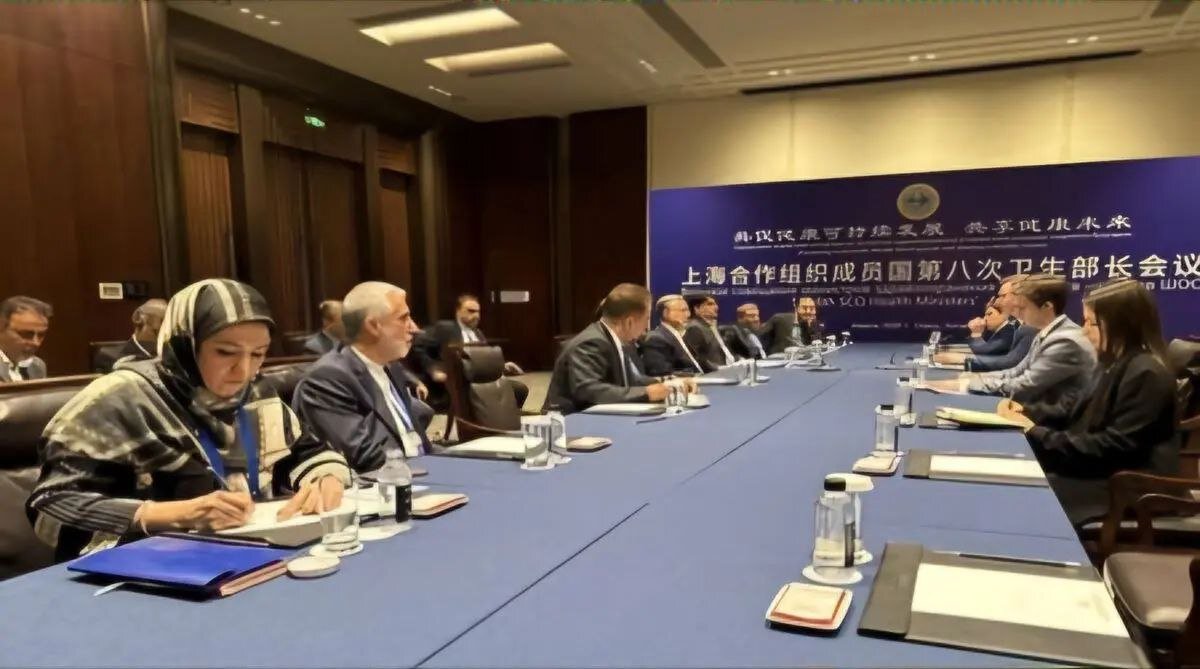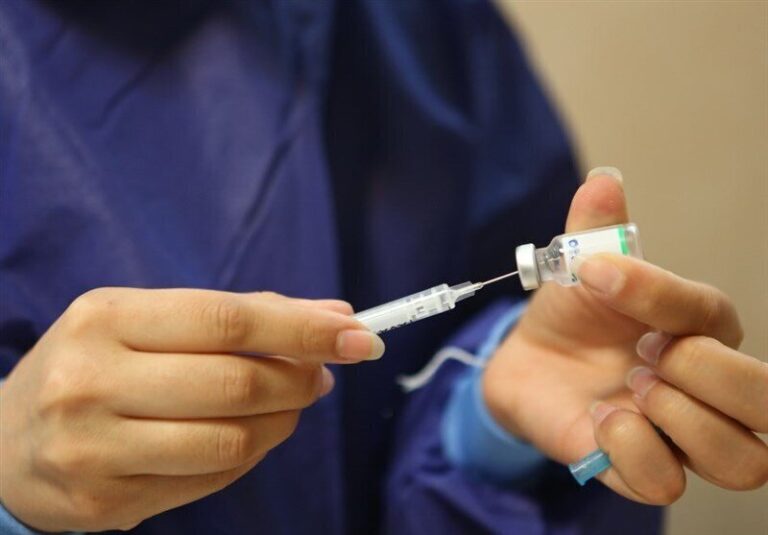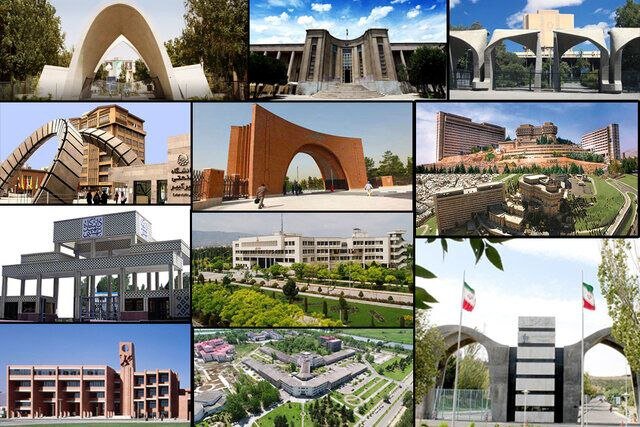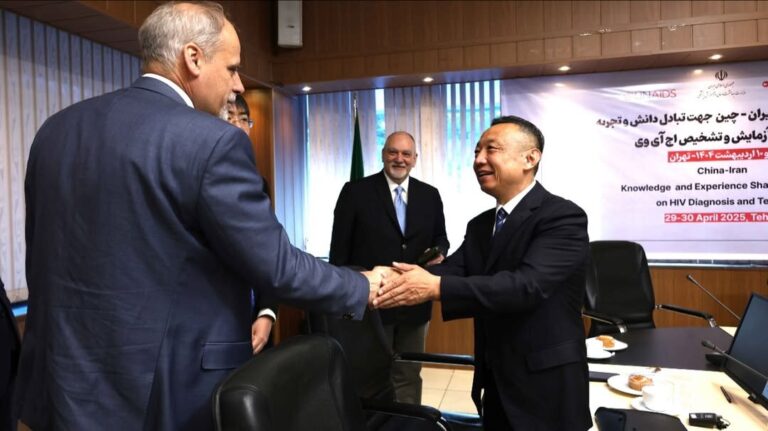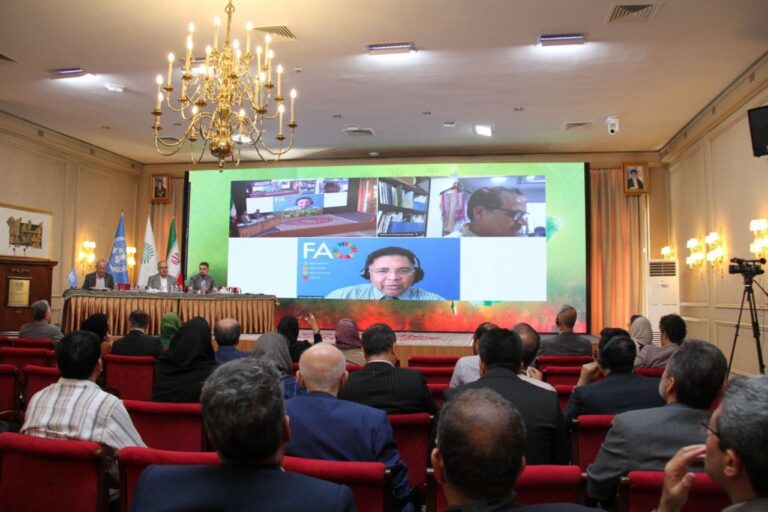Tehran and Moscow Engage in Strategic Talks to Boost Health Cooperation
In a significant development aimed at strengthening international collaborations in healthcare, Iranian Health Minister Mohammad-Reza Zafarqandi met with Russia’s Deputy Health Minister Oleg Salagay. This meeting took place during the eighth gathering of health ministries from member countries of the Shanghai Cooperation Organization (SCO) in Xi’an, China. The discussion centered around enhancing ties in the health sector between Iran and Russia, emphasizing the importance of cooperation and knowledge exchange.
During the meeting, Salagay expressed Russia’s enthusiasm to expand its health sector collaboration with Iran. He highlighted the necessity of fostering connections between universities in both countries, particularly through initiatives such as student exchanges. Salagay conveyed optimism that a forthcoming memorandum of understanding would serve as a foundation for implementing the agreements reached during their discussions.
In response, Minister Zafarqandi underscored several key areas for collaboration, which include:
- Joint Activities: Focus on both communicable and non-communicable diseases.
- Pharmaceutical Production: Manufacturing of pharmaceutical products and medical tools.
- Modern Health Technologies: Integration of modern and digital health technologies.
- Scientific Conferences: Hosting joint scientific conferences.
- Education Standards: Training students according to international standards to ensure high-quality education.
This dialogue aligns with the broader context of the strategic partnership established between Iran and Russia following the signing of the Treaty on the Comprehensive Strategic Partnership. This agreement was formalized by Iranian President Masoud Pezeshkian and Russian President Vladimir Putin on January 17 in Moscow.
Following the treaty’s signing, both countries have emphasized the importance of enhancing collaboration in various spheres, particularly in health care. Mohammad-Hossein Niknam, Iran’s deputy health minister for international affairs, along with Hadi Goudarzi from the Iranian Embassy in Russia, reiterated the significance of fostering partnerships in scientific research, technology, and education.
Key initiatives discussed as part of this collaboration include:
- Establishment of a permanent joint committee to oversee health sector cooperation.
- Creation of a university network to facilitate educational exchanges.
- Regular meetings among the presidents of leading medical universities.
- Development of platforms for Russian students to study in Iran.
Under this strategic partnership, the two nations are committed to enhancing their collaborative efforts in several critical areas, including:
- Health System Organization: Improving the management of state-run health systems.
- Disease Management: Preventing and treating both communicable and non-communicable diseases.
- Maternal and Child Health: Protecting the health of mothers and children.
- Medicine Regulation: Establishing regulations for the distribution of medicines and medical devices.
- Healthy Lifestyle Promotion: Promoting a healthy lifestyle among the population.
- Medical Research: Conducting relevant medical research.
- Digital Technology Utilization: Integrating digital technologies into the healthcare system.
- Professional Training: Providing specialized training for health experts.
This partnership aims to create long-term, constructive relationships in higher education, science, technology, and innovation. Both countries are also keen on implementing joint scientific and technical projects and enhancing interactions among educational and scientific institutions.
Additional aspects of the agreement include:
- Exchange programs for professors and students.
- Sharing scientific and technical knowledge, literature, periodicals, and bibliographies.
- Conducting joint conferences, meetings, and exhibitions to foster collaboration.
The health ministries of Iran and Russia are optimistic that these initiatives will pave the way for successful cooperation, benefiting both nations as they navigate the challenges of modern healthcare.
This collaborative effort signifies a promising step towards a more integrated approach to health and education, showcasing the potential for international partnerships to address global health issues effectively.
